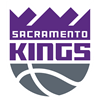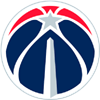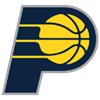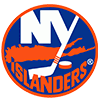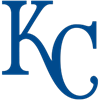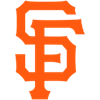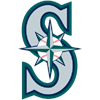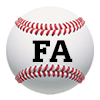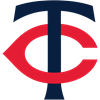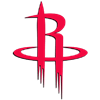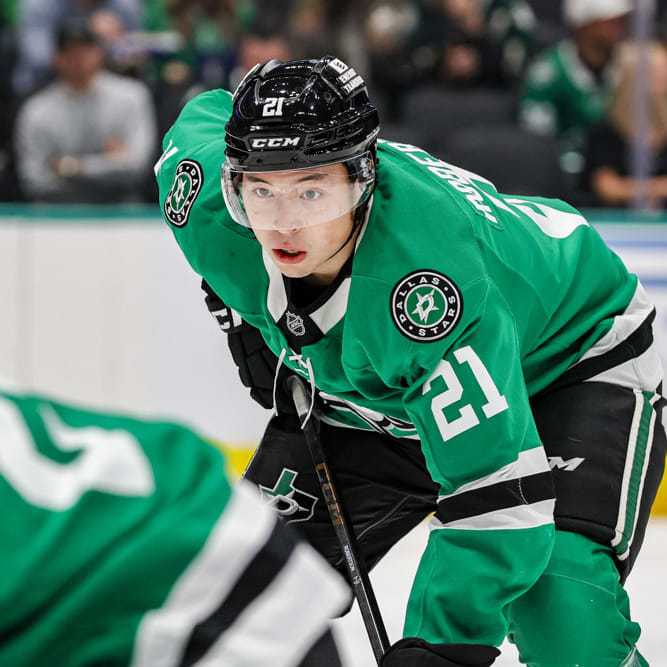This is the first of our annual two-part series detailing the top prospects in the NHL entering the 2024-25 season.
A couple of quick notes on this year's list before we get started.
- There were upwards of 15-20 names I considered for the back half of the top 100. There certainly appears to be a somewhat significant tier break after that.
- The final 25-30 names can be arranged in almost any order. Every player at that point has potential long-term upside for one reason or another, in addition to multiple flaws.
51- Tom Willander (D, VAN): A native of Sweden, Willander decided to go the NCAA route and arrived at Boston University last fall. He became an immediate impact player for the Terriers, finishing with four goals and 25 points in 38 games in his freshman season. The offensive production was, quite frankly, shocking. WIllander has elite speed and gap control, but his puck play is nothing better than average. His game lacks dynamic elements, but he's slowly gaining more confidence offensively and the speed is a legitimate difference-maker. I could see the Canucks signing WIllander after his sophomore season if he displays continued growth throughout the course of the year. He's absolutely trending in the right direction and is ahead of where I expected him to be at this point.
52- Conor Geekie (C, TB): The Lightning have had one of the worst prospect pools in the NHL for years, which is the price of doing business when
This is the first of our annual two-part series detailing the top prospects in the NHL entering the 2024-25 season.
A couple of quick notes on this year's list before we get started.
- There were upwards of 15-20 names I considered for the back half of the top 100. There certainly appears to be a somewhat significant tier break after that.
- The final 25-30 names can be arranged in almost any order. Every player at that point has potential long-term upside for one reason or another, in addition to multiple flaws.
51- Tom Willander (D, VAN): A native of Sweden, Willander decided to go the NCAA route and arrived at Boston University last fall. He became an immediate impact player for the Terriers, finishing with four goals and 25 points in 38 games in his freshman season. The offensive production was, quite frankly, shocking. WIllander has elite speed and gap control, but his puck play is nothing better than average. His game lacks dynamic elements, but he's slowly gaining more confidence offensively and the speed is a legitimate difference-maker. I could see the Canucks signing WIllander after his sophomore season if he displays continued growth throughout the course of the year. He's absolutely trending in the right direction and is ahead of where I expected him to be at this point.
52- Conor Geekie (C, TB): The Lightning have had one of the worst prospect pools in the NHL for years, which is the price of doing business when you're constantly winning. They acquired Geekie from Utah in the Mikhail Sergachev deal and he immediately slots in as their top prospect. He had 43 goals and 99 points between two WHL stops a season ago, but I'm still not entirely convinced the offensive profile is going to translate to the pro ranks. Geekie is big (6-foot-4, 200 pounds) and strong, but as I've said all along, his game lacks pace. He's better down low and off set pieces in the offensive zone than in transition. I understand why Tampa Bay targeted him because he theoretically has a high ceiling no one in their system can match, but this one could go either way.
53- Brennan Othmann (LW, NYR): Othmann turned pro last season and made the AHL All-Star Team in his first year with Hartford. He started quickly before slowing down a bit, finishing the season with 21 goals and 49 points in 67 games. He also made a brief three-game appearance with the Rangers. Othmann is a versatile winger. He's a pain in the neck to play against, loves to throw the body around, and has an excellent shot. Othmann looked really good with the man advantage for the Wolf Pack, but that's not going to be his role at the NHL level, at least not initially. He appears just about ready for full-time NHL duty in some capacity, likely a middle-six role to start.
54- David Reinbacher (D, MTL): A strong, powerful, two-way defender, Reinbacher spent last season in his native Switzerland (11 points in 35 games) before finishing the year with AHL Laval (five points in 11 games). He looked solid in my viewings, playing his usual sound defensive game in addition to displaying flashes of promise offensively. Reinbacher's game lacks creativity, but he skates fine, makes smart plays with the puck and is a legitimate asset in all three zones. I would have been looking for a bit more ceiling with the No. 5 overall pick in 2023, but I also acknowledge it's highly unlikely Reinbacher develops into anything less than a solid middle-pairing defenseman.
55- Jacob Fowler (G, MTL): Fowler took over as the unquestioned starter in his freshman season at Boston College and was exceptional from start to finish. He closed with a 32-6-1 record, 2.14 GAA and .926 save percentage in helping the Eagles to the NCAA Championship game. He was named a first-team All-American for his efforts. Fowler has progressively improved in all areas from his time in the USHL to his one season at BC. His side-to-side ability is exceptional and looking back on it, he never should have lasted to the No. 69 overall pick in the 2023 draft. My guess is that he has one more massive season for the Eagles and then turns pro. He sure looks like the goaltender of the future for the Canadiens.
56- Joakim Kemell (LW, NSH): Kemell's first full season in North America was encouraging. He had 16 goals and 41 points in 67 AHL games before adding 11 points in 15 postseason appearances. The highlight of Kemell's game is his shot. He has a powerful one-timer and is particularly effective with the man advantage with all the extra open space. I've always found his passing abilities underrated, but he's more of a sniper than a playmaker. There's no rush given he won't turn 21 years of age until next April, but seemingly just about ready for NHL duty in some form or fashion, Kemell projects to open the upcoming campaign back in the AHL before getting the call at some point during the year.
57- Gavin Brindley (RW, CLS): I love Brindley as a prospect, but I didn't think there was any way he would dominate his sophomore season at the University of Michigan (53 points in 40 games), dominate at the World Juniors (10 points in seven games) and be in the Columbus lineup at the end of the season. Yet that's exactly what happened. Brindley is the ultimate high-floor prospect. His compete and speed are both excellent. Those two traits alone will make him a useful NHL player. He has plenty of skill for a small guy (5-foot-9, 170 pounds), which combined with terrific hockey IQ allows him to get on the scoresheet with regularity. Brindley looks like a high-end third liner with the ability to move up in the lineup should injuries strike. He's one of my favorite prospects in the entire NHL.
58- Dmitri Simashev (D, UTA): Simashev logged a regular shift for Yaroslavl in the KHL last season as an 18-year-old and that alone is an accomplishment. The point production wasn't there, as he had just four goals and 10 points in 63 games, and there have been serious questions as to how much offense there is in Simashev's game. I thought he was a serious reach at No. 6 overall in 2023, but he can really skate, makes smart decisions with the puck and is reasonably strong defensively. I see more of a solid No. 3-4 guy as opposed to a top-pairing rearguard, but Simashev is a solid prospect regardless. His KHL contract reportedly expires at the end of the season.
59- Brayden Yager (C, WPG): The former No. 3 overall pick in the 2020 WHL Bantam Draft and former CHL Rookie of the Year, Yager is a dangerous offensive player. I've long been impressed by both his shot and his ability to consistently win board battles despite having only average size at 6-foot, 170 pounds. I have minor concerns he might be a long-term winger, but as a responsible two-way player, he'll quickly earn the trust of the coaching staff. Drafted by the Penguins at No. 14 overall in 2023, Yager was traded to Winnipeg in late August in a one-for-one deal for former disgruntled first-rounder and fellow top prospect Rutger McGroarty.
60- Bradly Nadeau (RW, CAR): Nadeau's draft-plus-one season could not have gone any better. He arrived at the University of Maine and dominated in his freshman year to the tune of 19 goals and 46 points in 37 games. He signed with the Hurricanes in early April, less than a year after he was the No. 30 overall pick in the draft and made his NHL debut at the tail end of the season. Nadeau was the best offensive player in the BCHL two seasons ago, but I was still shocked at how effectively his offensive game translated to the NCAA level. The individual skill here is substantial, and although I probably would have advocated Nadeau return to school for one more year, Carolina is among the best teams in the NHL at developing players, so it's not shocking they wanted to get him signed and into their system. He should play most, if not all, of the upcoming season in the AHL before challenging for a full-time role in 2025-26.
61- Daniil But (LW, UTA): But's production in the KHL last season was strong (10 goals, 21 points in 55 games) given his limited role. Checking in at 6-foot-6 with excellent hands and a deft touch around the net, But has all the makings of a potentially premier power forward. His skating is somewhere between average to a tick below depending on your viewings, but he moves fine for such a big kid. He's very good at using his big frame to his advantage, winning battles in the corners and making an impact on the cycle game. It's going to take time, but the potential here is obvious. Utah will look to get But signed at the end of the season when his KHL deal reportedly expires.
62- Matthew Savoie (C, EDM): Ryan McLeod is a nice little player, but Edmonton's acquisition of Savoie in exchange for him from the Sabres this past July has the potential to be a huge coup for an Oilers team with a lousy prospect pool. A Western Canadian kid, Savoie played for four different teams last year. He appeared in one game for Buffalo, six games (five points) for their AHL affiliate in Rochester, then split time with Wenatchee and Moose Jaw, helping the Warriors with the WHL Championship. Savoie weaves in and out of traffic with ease and rarely puts himself in a position to be hit despite having the puck a lot and being undersized (5-foot-9, 180 pounds). He's not a lock to be an impact player at the NHL level, as he had a lousy World Juniors and fades into the background at times, but I'd take his upside over McLeod's all day long given where Edmonton is as an organization. It's a worthy dice roll for the Oilers.
63- Liam Ohgren (LW, MIN): It took a while for Ohgren to find his game, but he finished the year with a dozen goals and 19 points in 26 SHL games. He closed the year playing in North America, getting into four games with the Wild and three games with their AHL affiliate in Iowa. In between, Ohgren was dreadful (zero goals, two assists) in serving as the captain for Sweden at the World Juniors. There was a point earlier in his prospect career when it appeared as if Ohgren might develop into a dominant offensive player. That hasn't materialized, mostly due to his below-average foot speed. He still finds a way to generate scoring chances and he's always shot the puck well, so Ohgren should still be able to pile up his fair share of points at the NHL level. He looks like a solid, complementary middle-six winger.
64- Easton Cowan (RW, TOR): Cowan seemed like a big-time reach at No. 28 overall back in 2023. A year-plus, and a 96-point (in 54 games) OHL season later, the Leafs may have gotten a steal. Cowan is both quick and shifty. He skates well, has excellent hockey sense and is constantly and consistently winning battles all over the ice. On top of that, Cowan is seemingly always in the correct spot because of how well he reads plays. I'm not sure he's going to dominate offensively as a pro, but Cowan seems like a prospect certain to get the maximum amount out of his individual abilities. Cowan has nothing left to learn at the junior level, but he's too young to play in the AHL, so if he doesn't crack the Toronto roster then he will be forced to return to London.
65- Chaz Lucius (C, WPG): It's impossible to get a read on Lucius' long-term potential because he simply cannot stay healthy. I'm a big fan of the player, but he's played a grand total of 66 games over the past three years combined. Lucius looked excellent early on last season, his first as a pro, posting 13 points in 17 games with AHL Manitoba before an ankle ailment ended his year. Offensively, Lucius is highly skilled and plenty creative. His skating is about average, but the offensive awareness and smarts make up for it. That said, I don't think Lucius is the type of no-doubt prospect who can miss all this time and get by without missing a beat. I remain optimistic about his long-term future, but that will change if Lucius again finds himself dealing with a significant injury during this upcoming campaign.
66- Noah Ostlund (C, BUF): Ostlund's final full season in his native Sweden was a successful one. He had a dozen goals and 23 points in 32 games for Vaxjo, using his speed and shiftiness to make plays. Ostlund reads plays well and has long been an underrated playmaker. He handles the puck well, particularly in tight. Ostlund can change directions at the drop of a hat, and he's always played hard. He needs to get bigger and stronger, but that's true of most every player at this age. If Ostlund can pack on some muscle and still maintain his offensive creativity, I like his chances of developing into a useful middle-six scorer for the Sabres.
67- Liam Greentree (RW, LA): A universally well-liked prospect, Greentree was named captain of Windsor this past season and responded with 36 goals and 90 points in 64 games -- 24 more points than anyone else on the club. For a kid who doesn't skate all that well, Greentree is constantly making plays. He has real skill, especially for a 6-foot-2 forward who checks in at north of 200 pounds. Greentree has displayed the ability to beat goaltenders from a distance, as well. His future NHL role is dependent on how he adjusts to the pace of the professional game, but he has enough positive things going for him that I think he will end up being a top-nine contributor in some form or fashion.
68- Jett Luchanko (C, PHI): Luchanko had a very good season, raising his draft stock considerably in the process. He led Guelph in scoring (20 goals, 74 points in 68 games) on the heels of a campaign in which he managed just five goals and 14 points in 46 appearances. He's an easy player to like. Luchanko plays with a ton of pace and is an above-average playmaker. He doesn't project as a major point producer at the NHL level, but his speed combined with an excellent work ethic gives Luchanko a high floor as a bottom-six guy. I wouldn't rule out a ceiling greater than that given his smarts. Luchanko isn't a sexy pick, and I thought the Flyers reached a bit to take him at No. 13 overall, but he's a solid prospect.
69- Terik Parascak (RW, WAS): Parascak was playing prep hockey in Calgary two seasons ago. He joined the Cougars this past year and finished third in league scoring with 43 goals and 105 points in 68 games, ridiculous numbers from a guy who was a fourth-round pick in the 2021 WHL Bantam Draft. As one would guess given the scoring totals, Parascak has excellent offensive abilities and hockey sense. The concern here is the skating. Parascak lacks breakaway speed, but I've never seen him have issues keeping up with the play. The statistical totals were likely inflated given he played alongside talented players for one of the best teams in the WHL, but Parascak has plenty of theoretical long-term upside. You don't have that type of offensive season as a 17-year-old in a new league unless you have plenty of ability in your own right.
70- Mikhail Gulyayev (D, COL): Gulyayev was a regular for Omsk in the KHL last season as an 18-year-old, which is a massive accomplishment. A defenseman known for his offense, Gulyayev has more pure talent than the four goals and 12 points in 64 games he posted last year would lead you to believe. He reads plays well and has displayed an ability to join the rush consistently and intelligently. Gulyayev's upside is tied to how his defensive game develops. He's not big (5-foot-10, 170) and lacks physicality, but Gulyayev's man-on-man defending continues to improve. The Avalanche certainly aren't counting on him to log hard defensive minutes, so if Gulyayev can offer just enough stability in his own zone, his offensive game should carry him the rest of the way. Gulyayev's KHL deal reportedly concludes at the end of the 2025-26 campaign.
71- Marco Kasper (C, DET): A veteran of 108 SHL games back in Sweden, Kasper arrived in the AHL last season as a 19-year-old and struggled early on. He got progressively better as the year went along, finishing with 14 goals and 35 points in 71 games. He played his best hockey in the postseason, adding seven points in nine games. A coach's delight, Kasper's compete level is exceptional. He skates fine and is constantly going to the difficult areas of the ice to make a play. I think there's a real chance he's more floor than ceiling at this point and that was my main argument against where the Red Wings drafted him (No. 8 overall) back in 2022, but Kasper is a winning player and should be an integral part of the next Detroit team to make a deep run in the Stanley Cup playoffs.
72- Sacha Boisvert (C, CHI): A first-round pick in the 2022 QMJHL Entry Draft, Boisvert, a Quebec native, has decided to go the USHL route before heading off to the University of North Dakota in the fall. Thus far, it seems like the correct decision. Checking in at 6-foot-2 and expected to stay in the middle, Boisvert has 53 goals and 113 points in 118 games over the course of the past two seasons for the Lumberjacks. He loses more battles than he should simply because he hasn't filled out yet, but Boisvert has an NHL-caliber shot and average secondary offensive abilities. Every NHL team is on the hunt for big, talented centers and Boisvert fits that bill.
73- Jordan Dumais (RW, CBJ): Dumais has been one of the best players in all junior hockey the past three years. In 153 games, he has racked up a ridiculous 109 goals and 296 points. It's elite production and it would have been far greater had injury not limited Dumais to just 21 games (plus five at the World Juniors) last season. A former QMJHL MVP, Dumais is truly deadly in open space. The vision and creativity are elite. The size (5-foot-10, 175 pounds), lack of breakaway speed and injury history are concerning, but most prospects that dominate the junior level to the extent Dumais has typically find a way to make it work in the NHL. Dumais will turn pro this coming season and should spend most of the campaign with AHL Cleveland, health permitting.
74- Frank Nazar (C, CHI): Nazar's first season at Michigan was a write-off following a hip injury that limited him to 13 games. He returned to full health last season, averaged a point-per-game for the Wolverines (17G, 41P in 41GP) and was in the Chicago lineup by the end of the year. Nazar looked a bit rusty early on, as expected, but quickly found his game. Blessed with blazing speed, Nazar can be a game-changer on the forecheck. He can fly through even the smallest of openings and end up making a play. I wish there was a bit more consistency to his game and I worry his decision to turn pro wasn't the correct one given all the time he missed his freshman year, but the skills are legit and the upside is high. 20 years of age until next January, Nazar is probably looking at a full season in the AHL if everything goes according to plan. It would almost certainly be the best thing for his long-term development.
75- Ryder Ritchie (RW, MIN): The 2022-23 WHL Rookie of the Year, Ritchie largely failed to take a step forward this past season (19 goals, 44 points in 47 games) although a shoulder injury which kept him out of action for quite a while was a major reason why. Some of Ritchie's best hockey has been playing for Canada internationally, which is a concern because those are short tournaments, not long seasons. It's clear Ritchie had a first-round offensive skill set. He's very slippery and creative. Ritchie is the type of player who can make something out of nothing, and those guys are tough to find in the area in which he is expected to come off the board. There are concerns here, but I could easily see a scenario in which we are looking back on this in a few years and wondering how in the world Ritchie -- who ended up going No. 45 overall to the Wild -- lasted as long as he did in the draft.
76- Dustin Wolf (G, CGY): The two-time reigning AHL Goaltender of the Year, Wolf finally got a bit of an extended run at the NHL level last season, going 7-7-1 with a 3.16 GAA and .893 save percentage. The Flames had an awful year, so I don't put much stock in the numbers. Wolf is always going to face a bias because, at 6-foot and 175 pounds, he's extremely undersized, particularly for the NHL game these days. I acknowledge the concern, but he plays much bigger than his size. He's seemingly always in the correct position and reads plays extremely well. With Jacob Markstrom traded to New Jersey and only journeyman Dan Vladar standing between him and playing time, I think Wolf has a real shot at claiming the No. 1 job in Calgary for the long haul.
77- Andrew Cristall (LW, WSH): Cristall had 39 goals and 95 points in 54 WHL games in his draft year (2023) and still slipped to 40th overall. He followed that up with 40 goals and 111 points in 62 games last season. I understand the concerns. Cristall, at 5-foot-10, 175 pounds, is small, his skating is below average and he has no second gear to pull away from opposing defenders. That said, Cristall possesses elite individual skills. He can make even the most difficult plays seem routine. It's a pure bet on talent winning out in the end because there aren't many players who succeed in the NHL with Cristall's skill set. Still, I'm a believer and will continue to be until he turns pro and it simply doesn't come together.
78- Riley Heidt (C, MIN): Stolen by the Wild at pick No. 64 in 2023, Heidt was ranked No. 24 on my big board. He returned to the WHL last season and predictably dominated, finishing third in the league in scoring with 117 points in 66 games. Heidt isn't going to score anywhere near that clip at the NHL level, but he's seemingly constantly involved. His work ethic is solid, he makes plays in all three zones and he has above-average skill, particularly in his ability to evade opposing defenders. He looks like a thorough, two-way pro who will be able to provide just enough offense to fill a top-nine role. Heidt should be one of the best players in all the CHL in his final season of junior hockey.
79- Filip Bystedt (C, SJ): Already signed to his entry-level deal, Bystedt was loaned back to the SHL last season and managed just eight goals and 17 points in 47 games for Linkoping. He was much better in a late-year AHL cameo, picking up seven points in eight games. Checking in at 6-foot-4 and north of 200 pounds, Bystedt uses his size to shield the puck from opposing defenders and carve out space in the offensive zone. He has reasonably good hands in tight, and overall, probably more natural offensive ability than he gets credit for. My lone complaint on Bystedt is that I wish he used his feet a bit more to gain a step off the rush. He is often content with slowing things down, which is understandable given his ability to win physical battles. He should start the upcoming season in the AHL.
80- Ivan Miroshnichenko (LW, WSH): Miroshnichenko debuted in North America last season and split time between the AHL (nine goals, 25 points in 47 games) and NHL (two goals, six points in 21 games). In an ideal world, he would have spent the entire year in the minors, but the Capitals were crushed by injuries and Miroshnichenko ended up being thrust into a role he wasn't quite ready for. Seemingly fully recovered from his bout with Hodgkin's Lymphoma a few years back, Miroshnichenko is one of the most intriguing Russian prospects in recent memory. He's not the most creative player around, but Miroshnichenko can really shoot the puck and has always had a strong work ethic. I just hope the fact he was rushed to the NHL last season doesn't harm him over the long term.
81- Matvei Gridin (C, CGY): Gridin earned some bonus points in the eyes of scouts for leaving his native Russia a couple of years ago for the USHL. He really broke out offensively for Muskegon this past year, leading the league in scoring after posting 38 goals and 83 points in just 60 games. At the top of his game, Gridin looks like a no-doubt first-rounder. He's an excellent puck handler and can make something out of nothing on the ice, particularly in tight spaces. His defensive play is up and down and his compete level is a bit in and out, but the shot is world class and you're drafting him to put up points. Originally scheduled to go to the University of Michigan, there were some issues with his grades and Gridin now appears likely to go the CHL route.
82- Tristan Luneau (D, ANH): Luneau split time between both Anaheim and their AHL affiliate in San Diego early in the season before a knee infection ended his year after just 13 games. It was a particularly difficult blow considering he was scheduled to serve as Canada's No. 1 defenseman at the World Juniors. Luneau's game is smooth and understated. He gets the puck out of his own zone smartly and without issue. He's always possessed an underrated shot, and although not blessed with blazing speed in a traditional sense, he uses his edges well and possesses the ability to evade opposing forecheckers. Luneau has the look of a steady No. 4 NHL rearguard who should be ready for full-time NHL duty assuming he can knock off the rust of missing nearly all last season.
83- Lian Bichsel (D, DAL): I've always had difficulty trying to rank Bichsel and that continues this year. He's a massive (6-foot-5, 230 pounds), physical, nasty, stay-at-home defender. He had just two goals and four points in 29 SHL games last season but displayed a bit more offense late in the year after joining AHL Texas, managing a goal and seven points in 16 games. To Bichsel's credit, he knows his limitations and does an excellent job of playing to his greatest strengths. I acknowledge it will be difficult for Bischel to provide the same type of value as most of the guys on this list simply because he lacks the upside, but I do think he can be one of the better players in the NHL regarding the things that he does well.
84- David Edstrom (C, NSH): The last pick of Round 1 by Vegas back in 2023, Edstrom's development has been positive enough that the Golden Knights were able to make him a big part of the deal with the Sharks which brought Tomas Hertl to Vegas in March. Edstrom's game lacks style but comes with plenty of substance. He keeps things relatively simple, can kill penalties and will display flashes of top-six offensive upside, although he's probably best served long-term as a third-line pivot. Edstrom's upside isn't super high but his compete level is strong, and he looks like an excellent bet to develop into a useful NHL player in some form or fashion. He was moved once again this summer, this time to Nashville in the Yaroslav Askarov deal.
85- Shakir Mukhamadullin (D, SJ): Mukhamadullin's first full season in North America was a successful one. He had seven goals and 34 points in 55 AHL games, in addition to getting a brief three-game cameo with the Sharks. Tall (6-foot-4) and lanky (190 pounds), Mukhamadullin remains a work in progress in many ways. He has underrated hands for a big man and is very good at gap control. His skating is just average, and I want to see Mukhamadullin play with more physicality on a consistent basis given his size, but it's an intriguing all-around tool kit, and given his age (23 this coming January) and success at the AHL level, I think Mukhamadullin has a real chance to make it as a middle-pairing rearguard for San Jose.
86- Leo Sahlin Wallenius (D, SJ): Sahlin Wallenius was a star in the Swedish U20 junior league this past season, averaging upwards of a point per game (11 goals, 42 points in 43 games) as a defenseman. An average-sized rearguard (6-foot, 180 pounds) with excellent speed, Sahlin Wallenius excels at changing directions at the drop of a dime and has the straight-line speed to pull away from forechecking forwards. Offensively, Sahlin Wallenius has displayed a strong understanding of when to jump into the play in hopes of creating scoring chances. Although he's not going to average nearly a point-per-game at the NHL level, between his smarts and overall awareness, I could see Sahlin Wallenius posting 35-plus points annually. He reminds me a bit of Dallas Stars defender (and former New York Rangers draftee) Nils Lundkvist, who was a huge prospect in Sweden prior to his North American arrival.
87- Maveric Lamoureux (D, UTA): I've been a bit lower than consensus on Lamoureux since he was drafted No. 29 overall by the then-Coyotes in 2022, but I'm starting to come around. Checking in at 6-foot-7 and north of 210 pounds, Lamoureux is remarkably coordinated for a big man. Many players that size seem to be all out of sorts on the ice. Not Lamoureux. His puck play is simple but confident. He had nine goals and 33 points in 39 QMJHL games last season, so he is slowly but surely improving offensively. Lamoureux isn't the big, physical monster most associate with hulking defenders, but it's an intriguing all-around skill set and he's clearly getting better on a yearly basis. He should debut in the AHL this coming season.
88- Joshua Roy (C, MTL): Roy was the final cut from my list last season, as he ranked No. 101. He was a lock to make it this time around following a season in which he posted 32 points in 41 AHL games in addition to nine points in a 23-game cameo with the Canadiens. The thing I've been most impressed with Roy regarding his development has been his adaptability. He's willing to do the dirty work to make both himself and his teammates better, and while he may never be a top-six scorer at the NHL level, Roy was the No. 1 overall pick in the 2019 QMJHL Draft, so he has more than his fair share of skill. It's an exceptional outcome for a kid who was a fifth-round pick (No. 150 overall) back in 2021.
89- Logan Mailloux, (D, MTL): The past off-ice concerns aside, Mailloux has developed beautifully from an on-ice standpoint. He arrived in the AHL last season, playing nearly the entire year at age 20, and posted 14 goals and 47 points in 72 games. He appeared in one game with Montreal, picking up an assist. Mailloux's hockey sense is questionable at times, but he's blessed with an abundance of physical gifts and that often helps him work through any mental mistakes he may make. Big (6-foot-3, 210 pounds), physical and talented, I envision Mailloux as a two-way second-pairing defender who contributes offensively and makes some boneheaded plays that draw the ire of both the coaching staff and Montreal fan base.
90- Sam Rinzel (D, CHI): Big (6-foot-4, 185 pounds) and rangy with solid offensive instincts, the Blackhawks spent the No. 25 overall pick on Rinzel back in 2022 and have been rewarded for their investment. Rinzel finally debuted at the University of Minnesota last season and had a pair of goals and 28 points in 39 games, far better offensive production than most anyone expected. He was also solid, if unspectacular, for Team USA in a depth role at the World Juniors. Rinzel's upside has always been enormous, but he's been viewed as a long-term project. He still isn't close to a finished product, but we are starting to see some of that potential that has long been talked about. Rinzel may be a three-or-four-year college guy, a relatively rarity these days among top prospects, but he should be worth it in the end.
91- Charlie Elick (D, CBJ): Elick's numbers to date at the junior level won't blow anyone away (eight goals, 40 points in 130 games), but he has a handful of clear NHL traits to his game, which would seem to make him a pretty good bet in the late-first-round range in which all players have flaws. Elick stands north of 6-foot-3 and is extremely mobile. He can close on opposing forwards in an instant, limiting their space and stopping rushes in an instant. His puck skills aren't great, as the poor scoring numbers indicate, but you aren't drafting him to put up points. The hope is that Elick can get into the Columbus organization and work with their skill coaches to clean up his handle and offensive decision-making just a tad. If he does, he could be a No. 4 NHL defender.
92- EJ Emery (D, NYR): Emery makes for a super tough evaluation. On one hand, you have an athletic, 6-foot-3 kid with excellent feet who has displayed, at a very young age, the ability to defend at a high level. On the other, Emery's offensive game is essentially nonexistent currently. In 95 games this past season between the NTDP and Team USA at the World U18s, Emery failed to score a single goal. He did manage 28 assists during that stretch. Emery is never going to be a prolific point producer at the NHL level. The hope is that he gains some confidence in terms of puck play after a few years at the University of North Dakota and that carries over to the pro ranks. The rest of his game is terrific, so there's legitimate middle-pairing upside here if it all comes together.
93- Jackson Blake (RW, CAR): The son of former Islander and Maple Leaf Jason Blake, Jackson was so good in his sophomore season at the University of North Dakota (22 goals, 60 points in 40 games) that the Hurricanes signed him to an entry-level deal and had him make his NHL debut at the tail end of the year. Those 60 points tied him for fourth in the country in scoring with Gabe Perreault (NYR) and Ryan Leonard (WSH), two prospects that appeared earlier on the list. Blake is seemingly always around the puck. He gets in on the forecheck, makes plays and is willing to throw the body around despite being all of 5-foot-11 and about 170 pounds. There's a ton of pace to his game and his work ethic is rock-solid. I highly doubt Carolina expected Blake to develop this quickly -- I personally thought he was a three-year college guy, at a minimum -- but he's now put himself in the conversation for a full-time NHL call-up should injuries arise this coming season.
94- Marek Vanacker (LW, CHI): Vanacker saw his stock rise consistently, and relatively quietly, throughout the course of the year, which is not an easy thing to do when you post 36 goals and 82 points in 68 games. He's a clear top-line offensive player at the junior level, and while that may not carry over to the professional ranks, Vanacker has plenty of other traits that likely will. His work ethic is strong, and he consistently finds himself in the middle of the play. His skating is somewhere between average to a tick above, and he reads plays well in all three zones. Vanacker looks like an ideal complementary player, who could very easily be among the OHL leaders in scoring by the time his junior career ends.
95- Scott Morrow (D, CAR): Morrow recently completed his third collegiate season at UMass-Amherst. He finished with 30 points in 37 games, scoring numbers right in line with his first two years on campus. Morrow signed with Carolina in early April and was in their lineup for a pair of games at the end of the season. There's zero doubt Morrow possesses the offensive abilities to thrive at the NHL level. He's a great passer with an accurate, underrated shot. Morrow's defensive zone game has improved over the years, even if it will never be considered a strength. Toss in some size (6-foot-2, 195 pounds) and a few brownie points for being right-handed and Morrow has a real shot to make it as No. 4 NHL rearguard.
96- Sebastian Cossa (G, DET): The Red Wings have slow-played things with Cossa, the No. 15 overall pick in 2021. He spent the vast majority of his first professional campaign two seasons ago in the ECHL. He moved up to the AHL last year and played well, posting a 22-9-9 record along with a 2.41 GAA and .913 save percentage. The thing that stands out most about Cossa is the size. He's a legitimate 6-foot-6 and moves well for such a big kid. His positioning is fine, although, like many young goaltenders, there are consistency issues to work through here. Cossa's ceiling is high because of the size/athleticism combination, but there's an equal amount of long-term risk. Cossa should once again be the starter for AHL Grand Rapids this coming year.
97- Seamus Casey (D, NJ): Casey continues to go about his business, performing like one of the better defensive prospects in the game while getting very little publicity in the process. The Miami native was one of the best rearguards in the country last season, averaging north of a point-per-game (seven goals, 45 points in 40 games) in his sophomore year at the University of Michigan, good for third in the country in defensive scoring. Like many undersized defensemen these days, Casey wins with smarts, speed and creativity. He's fast enough to blow past opposing forwards and talented enough to run a power-play. With guys like Luke Hughes, Simon Nemec, and 2024 No. 10 overall pick Anton Silayev ahead of him on the depth chart, the Devils don't seem like an ideal long-term landing spot, but I'm willing to bet on Casey's abilities. He's ticketed to spend the entirety of his first pro season in the AHL.
98- Samuel Honzek (LW, CGY): Honzek had a rough season. He was limited to just 33 games with WHL Vancouver and averaged less than a point per game, closing with 10 goals and 31 points. Honzek added four points in five games while serving as an alternate captain for Slovakia at the World Juniors. He's dabbled at center, but I think he's probably a long-term left wing. The dip in offensive production is highly concerning for a top prospect, but Honzek still has enough going for him -- size, work ethic, enough skill -- to eventually settle in as a productive middle-six asset. He needs a rebound performance in 2024-25.
99- Trey Augustine (G, DET): Augustine debuted at Michigan State last season and played even better than his numbers (23-9-2, 2.96 GAA, .915 save percentage, 3 shutouts) would lead you to believe. He was a rock for Team USA at the World Juniors, going 4-0 with a 1.75 GAA and .936 save percentage. It's exceedingly rare to find a young goaltender with the composure of Augustine. He is seemingly never rattled, even in the rare instances in which he gives up a bad goal. He lacks ideal athleticism and size (6-foot-1, 180 pounds), but his game has no obvious drawbacks, and I can absolutely envision a scenario in which Augustine becomes a No. 1 goaltender at the NHL level at some point down the line.
100- Felix Unger Sorum (RW, CAR): The Hurricanes have a unique ability to consistently hit on non-first-round draft picks. Unger Sorum was a very late second-rounder (62nd overall) in 2023. He had an excellent training camp and almost made the Carolina roster as an 18-year-old. He eventually returned to Sweden and managed 15 points in 35 games. He has more offensive ability than those numbers indicate. Unger Sorum is an asset with the man advantage and displays excellent hockey sense. The skating is a mild concern, but between the hockey IQ and skill level, I see a solid middle-six offensive contributor down the road with a slight chance for more.
THE NEXT 100
101- Owen Beck (C, MTL)
102- Theo Lindstein (D, STL)
103- Caedan Bankier (C, MIN)
104- Colton Dach (C, CHI)
105- Ethan Gauthier (RW, TB)
106- Marat Khusnutdinov (C, MIN)
107- Aron Kiviharju (D, MIN)
108- Harrison Brunicke (D, PIT)
109- Fraser Minten (C, TOR)
110- Cole Beaudoin (C, UTA)
111- Nathan Gaucher (C, ANA)
112- Kasper Halttunen (RW, SJ)
113- Jagger Firkus (RW, SEA)
114- Lenni Hameenaho (RW, NJ)
115- Luca Cagnoni (D, SJ)
116- Michael Hrabal (D, UTA)
117- Yegor Surin (C, NSH)
118- Anton Wahlberg (C, BUF)
119- Denver Barkey (C, PHI)
120- Otto Stenberg (C, STL)
121- Eduard Sale (LW, SEA)
122- Hunter Brzustewicz (D, CGY)
123- Vincent Iorio (D, WSH)
124- Teddy Stiga (LW, NSH)
125- Henry Mews (D, CGY)
126- Isaac Howard (LW, TB)
127- Jani Nyman (RW, SEA)
128- Oscar Fisker Molgaard (C, SEA)
129- Sean Behrens (D, COL)
130- Fabian Lysell (RW, BOS)
131- Linus Eriksson (C, FLA)
132- Owen Pickering (D, PIT)
133- Emil Hemming (RW, DAL)
134- Brendan Brisson (C, VGK)
135- Ryan Ufko (D, NSH)
136- Etienne Morin (D, CGY)
137- Sam O'Reilly (C, EDM)
138 - Dean Letourneau (C, BOS)
139- Mathieu Cataford (RW, VGK)
140 - Danny Nelson (C, NYI)
141- David Goyette (C, SEA)
142- Isak Rosen (LW, BUF)
143- Nikita Chibrikov (RW, WPG)
144- Sean Farrell (LW, MON)
145- Fedor Svechkov (C, NSH)
146- Zack Ostapchuk (C, OTT)
147- Ethan Del Mastro (D, CHI)
148- Mackie Samoskevich (LW, FLA)
149- Adam Jecho (RW, STL)
150- Adam Kleber (D, BUF)
151- Jesse Pulkkinen (D, NYI)
152- Beau Akey (D, EDM)
153- Matyas Sapovaliv (C, VGK)
154- Carter Mazur (LW, DET)
155- Adam Gajan (G, CHI)
156- Luca Del Bel Belluz (C, CBJ)
157- Aatu Raty (C, VAN)
158- Simon Zether (C, FLA)
159- Ryan Chesley (D, WSH)
160- Tanner Howe (LW, PIT)
161- Nikita Artamonov (LW, CAR)
162- Roman Kantserov (RW, CHI)
163- Nolan Allan (D, CHI)
164- Maxim Strbak (D, BUF)
165- Dominik Badinka (D, CAR)
166- Lucas Pettersson (C, ANA)
167- John Mustard (LW, CHI)
168- Drew Commesso (G, CHI)
169- Alexander Rykov (RW, CAR)
170- Maxim Masse (RW, ANA)
171- Josh Doan (RW, UTA)
172- Cole Hutson (D, WSH)
173- Matvei Shuravin (D, FLA)
174- Mikhail Yegorov (G, NJ)
175- Nikolai Kovalenko (RW, COL)
176- Adam Engstrom (D, MTL)
177- Julius Miettinen (C, SEA)
178- Alfons Freij (D, WPG)
179- Zachary L'Heureux (C, NSH)
180- Melvin Fernstrom (RW, VAN)
181- Ben Danford (D, TOR)
182- Lukas Cormier (D, VGK)
183- Marcus Gidlof (G, NYI)
184- Andrew Basha (RW, CGY)
185- Leon Muggli (D, WSH)
186- Jacob Battaglia (RW, CGY)
187- Calle Odelius (D, NYI)
188- Eemil Vinni (G, EDM)
189- Will Skahan (D, UTA)
190- Sergei Ivanov (G, CBJ)
191- Veeti Vaisanen (D, UTA)
192- Brett Berard (LW, NYR)
193- Artyom Duda (D, UTA)
194- Dylan Garand (G, NYR)
195- Lukas Fischer (D, STL)
196- Kirill Dolzhenkov (RW, CBJ)
197- Topi Niemela (D, TOR)
198- Oskar Olausson (LW, COL)
199- Noel Fransen (D, CAR)
200- Christian Kyrou (D, DAL)
JUST MISSED
- Luke Misa (C, CGY)
- Charlie Stramel (C, MIN)
- Gleb Trikozov (LW, CAR)
Looking for more? Check out our Prospect Rankings that includes an ETA for each player to make the jump to the NHL: https://www.rotowire.com/hockey/prospects.php








